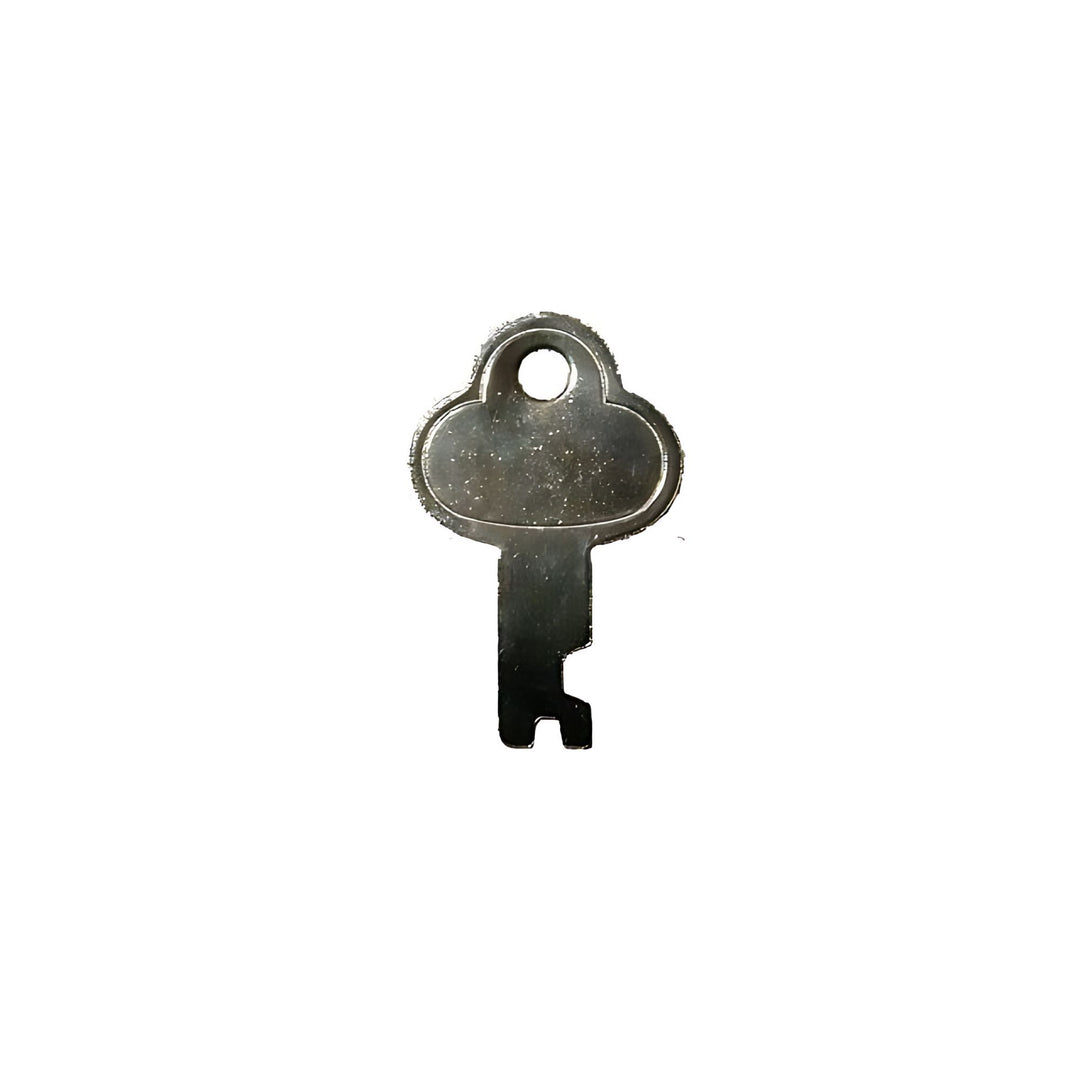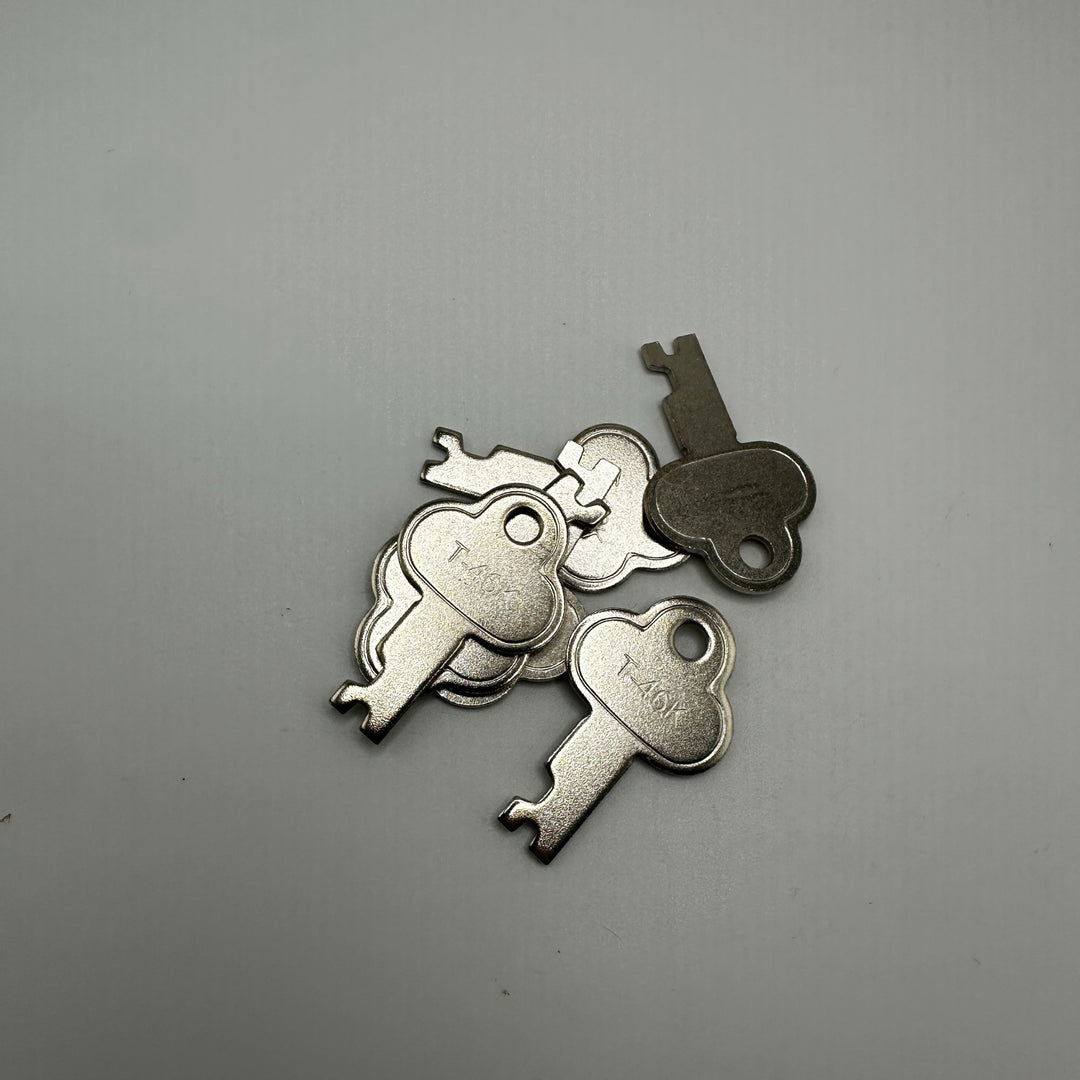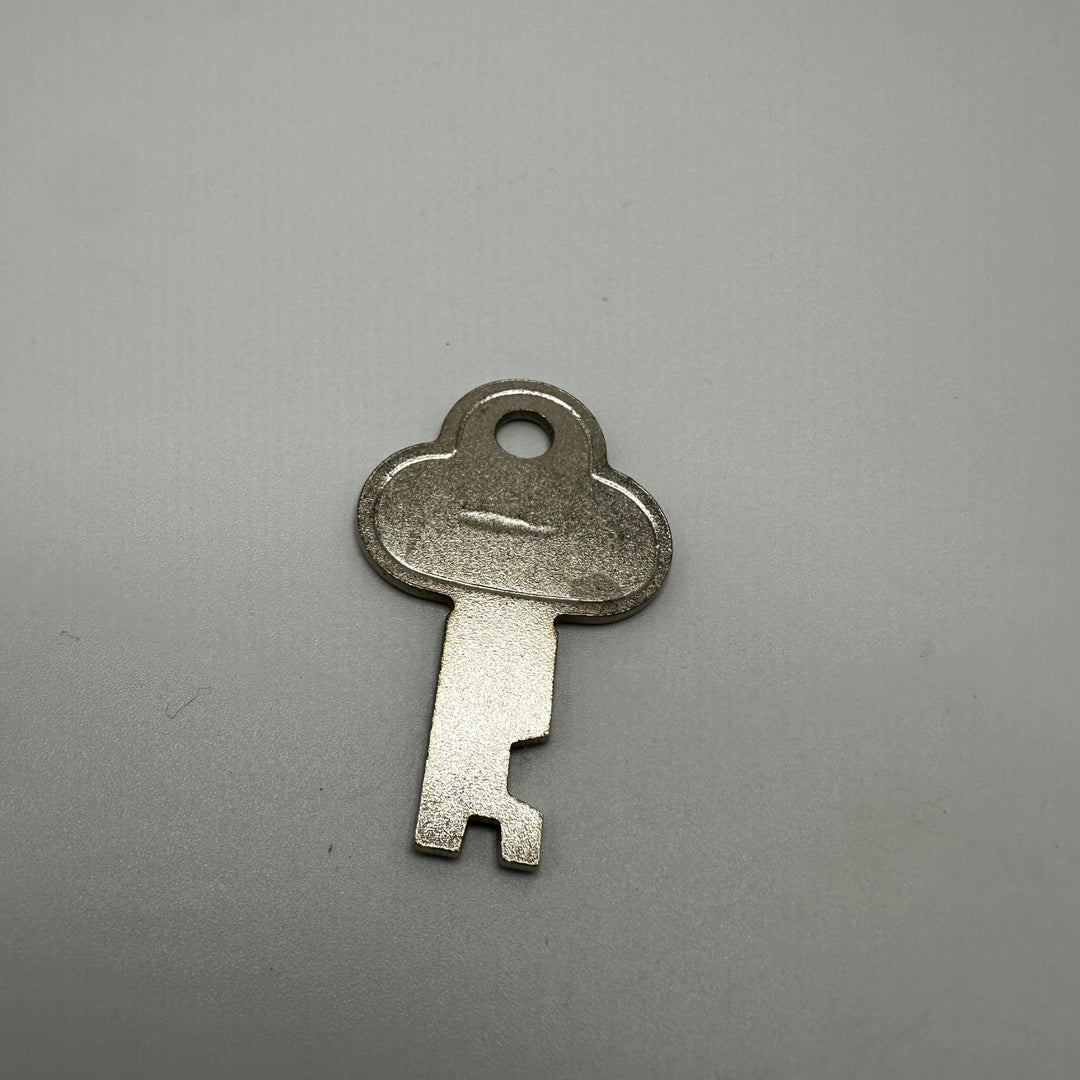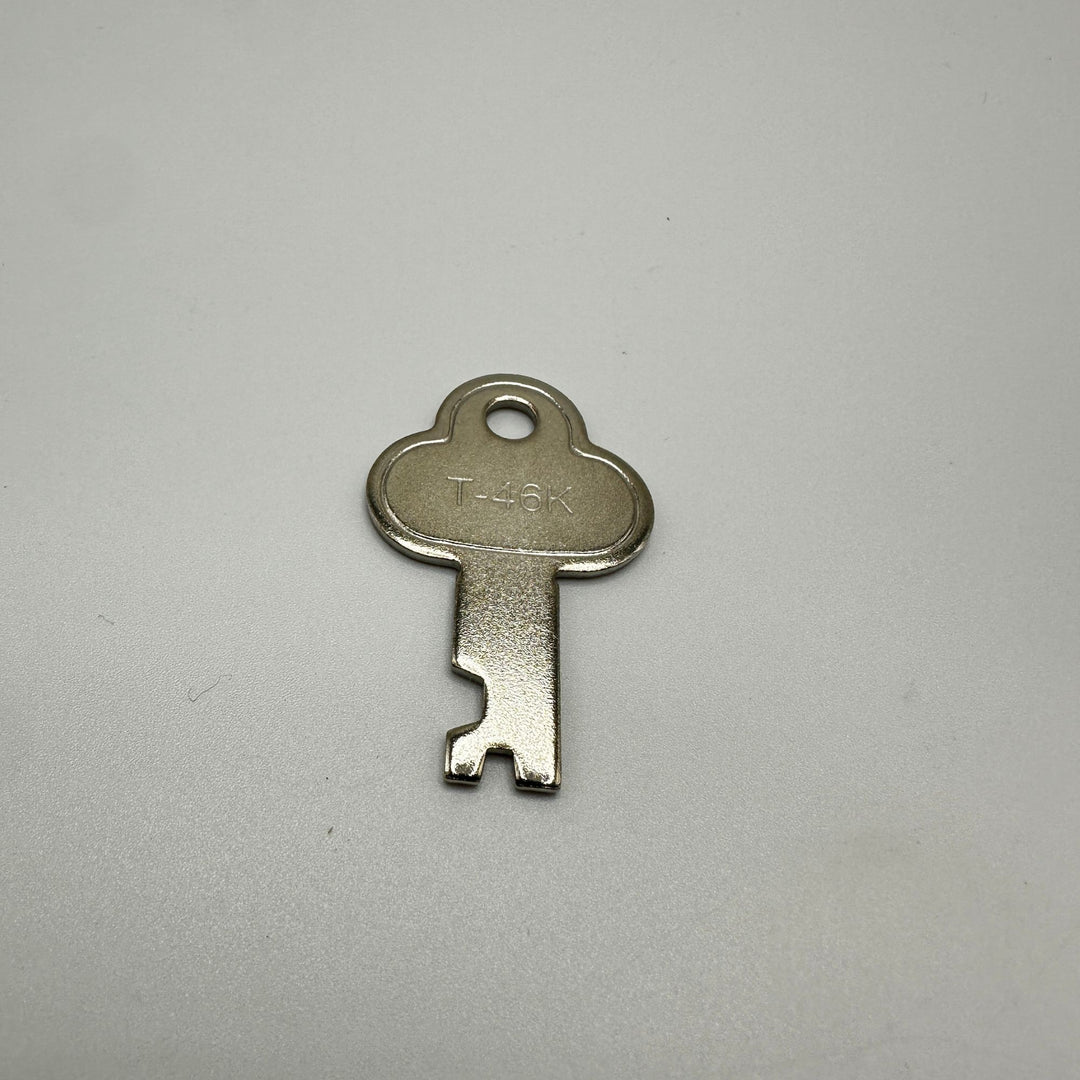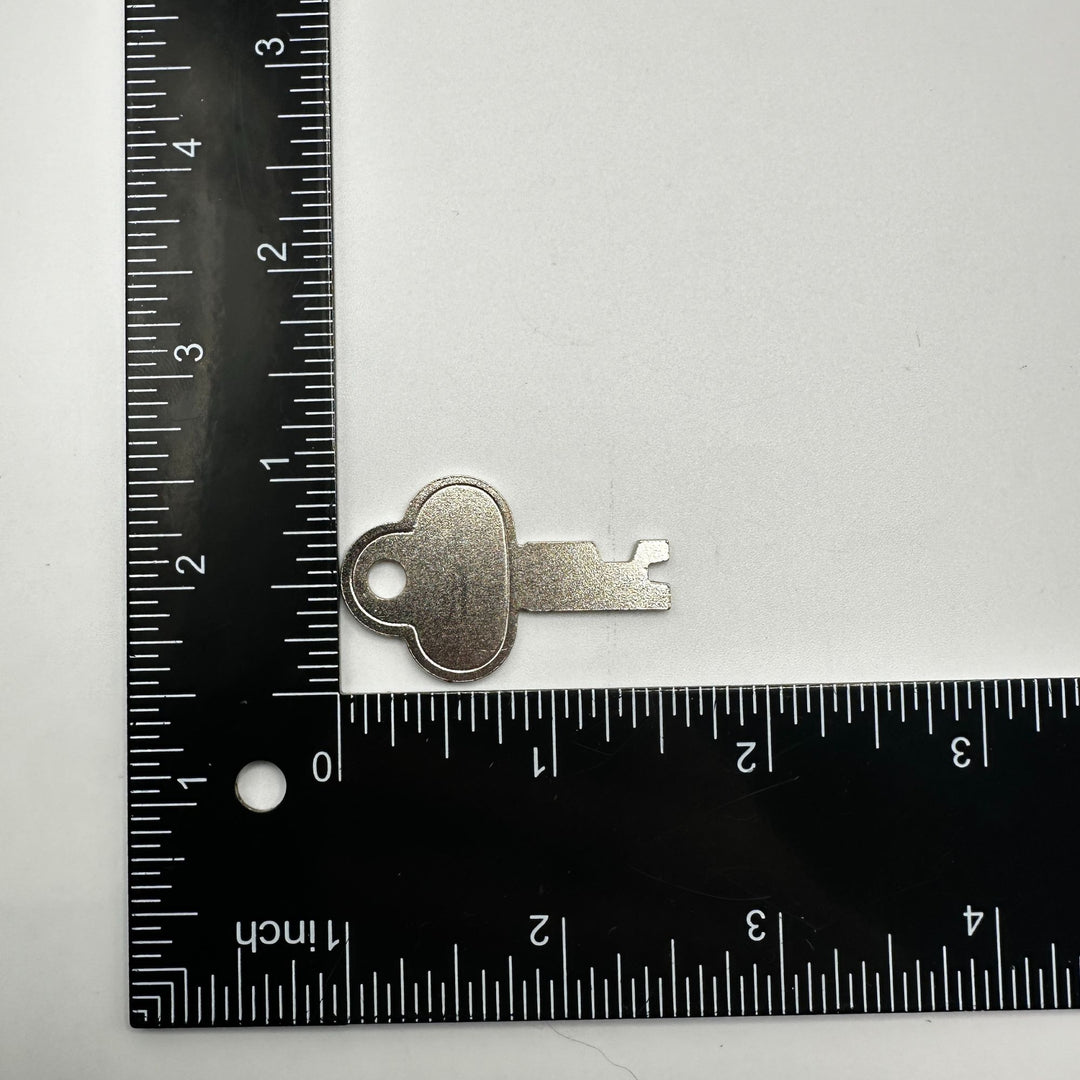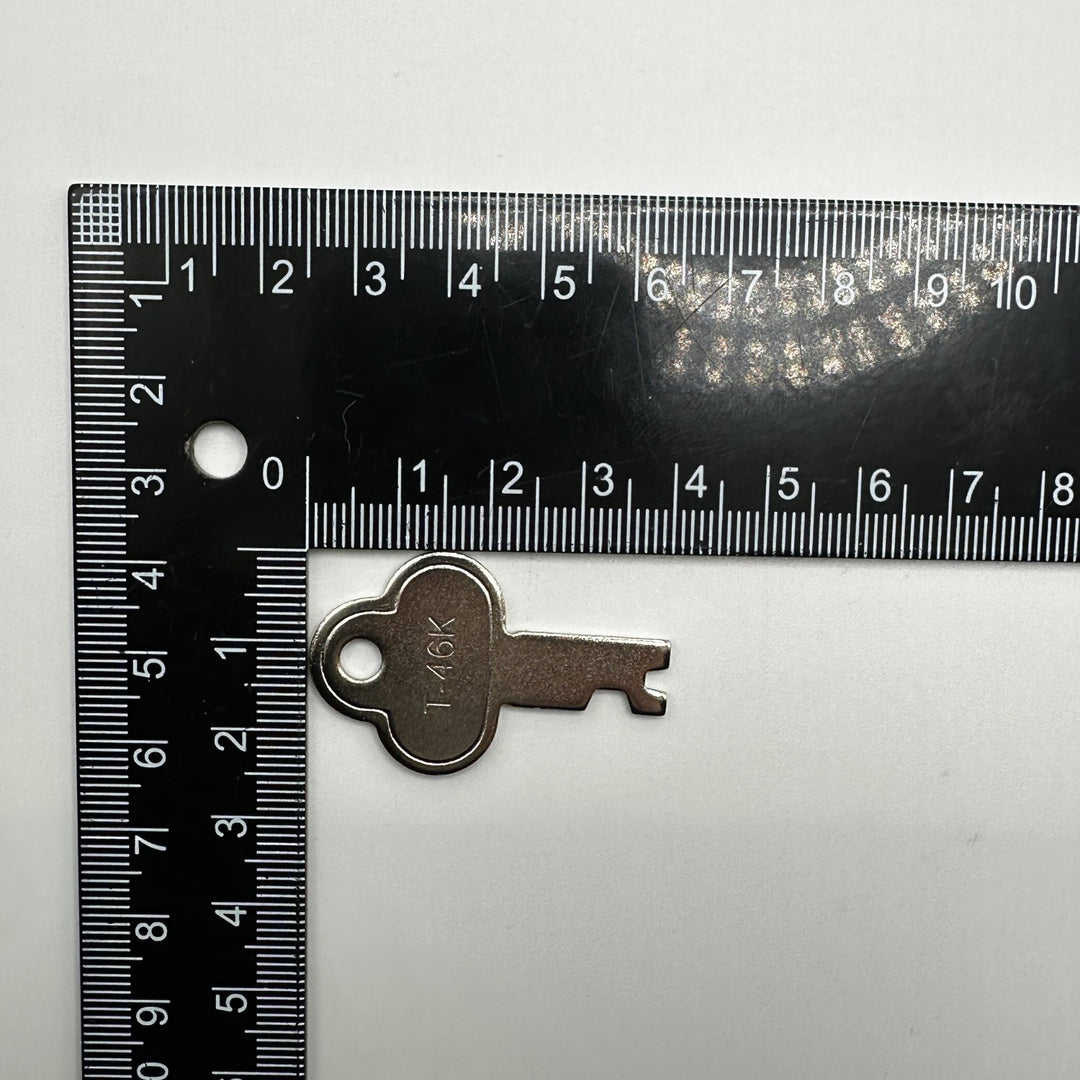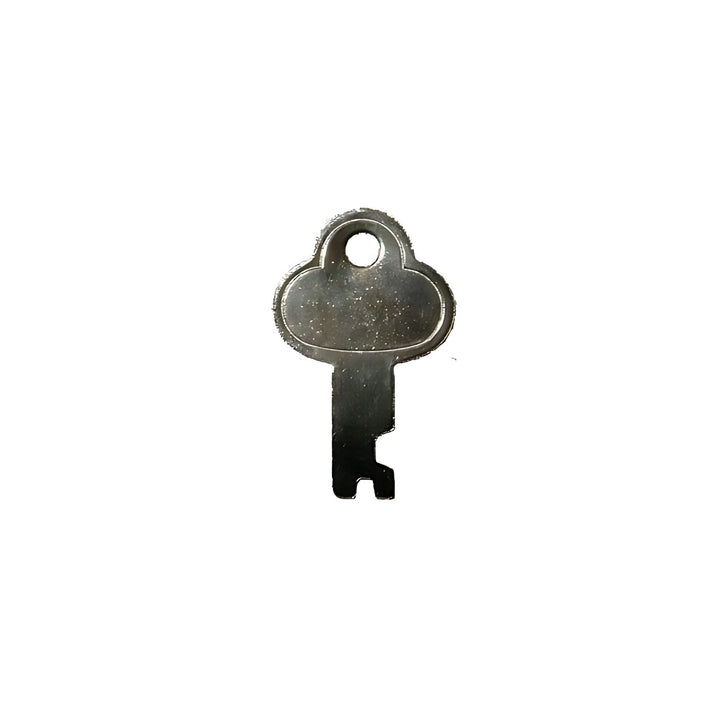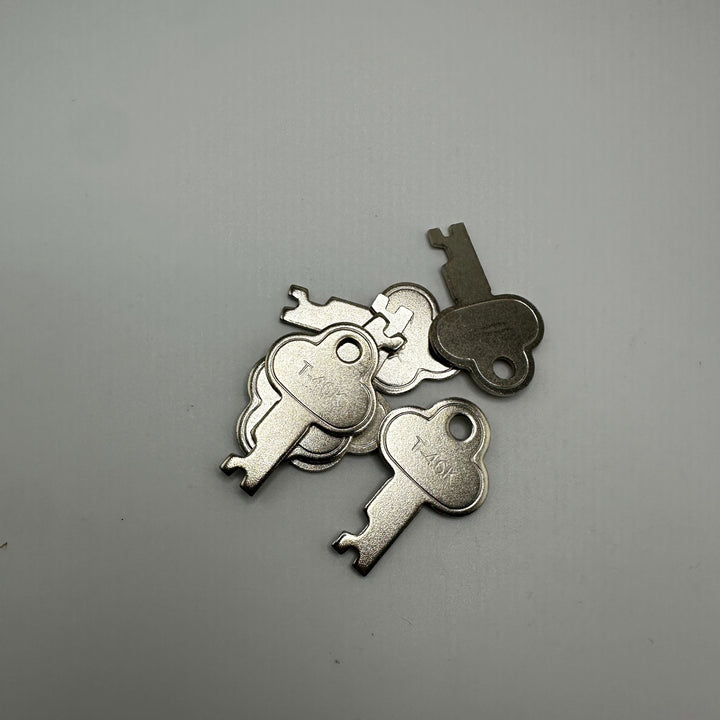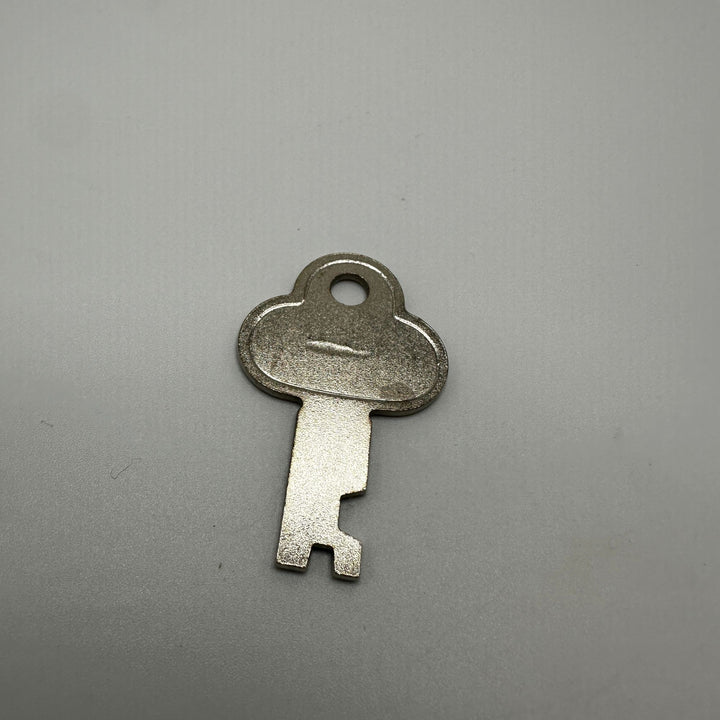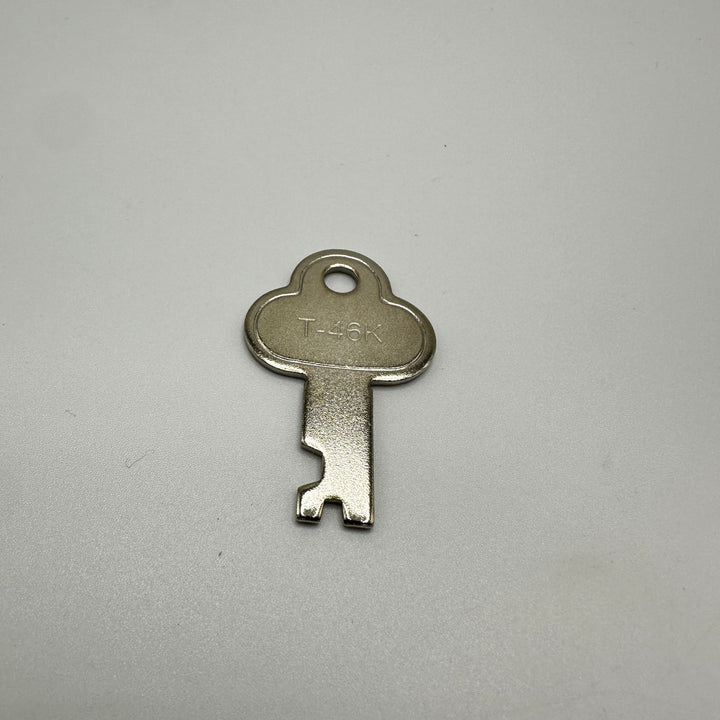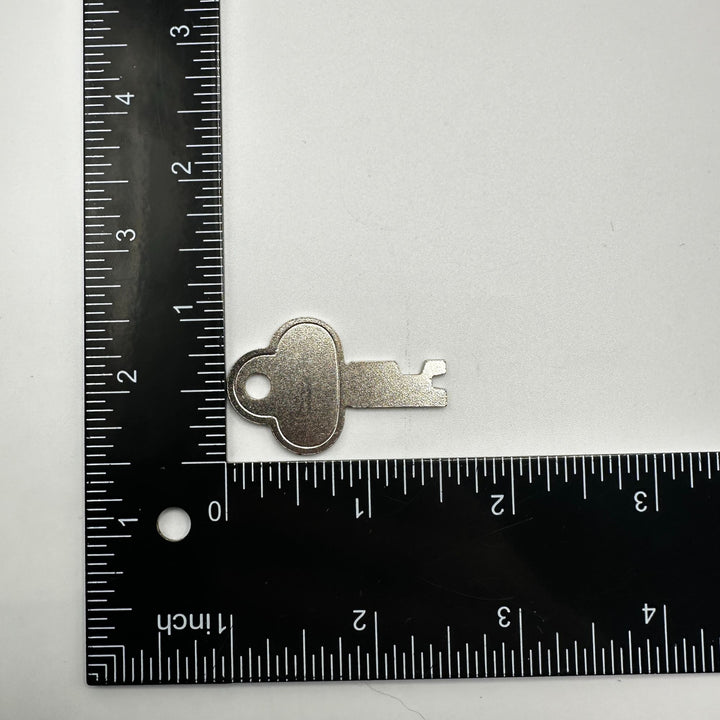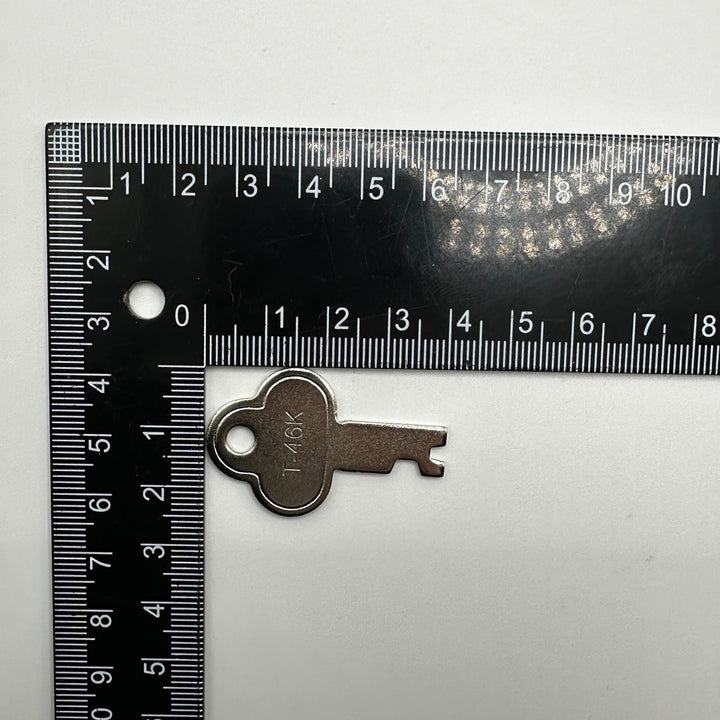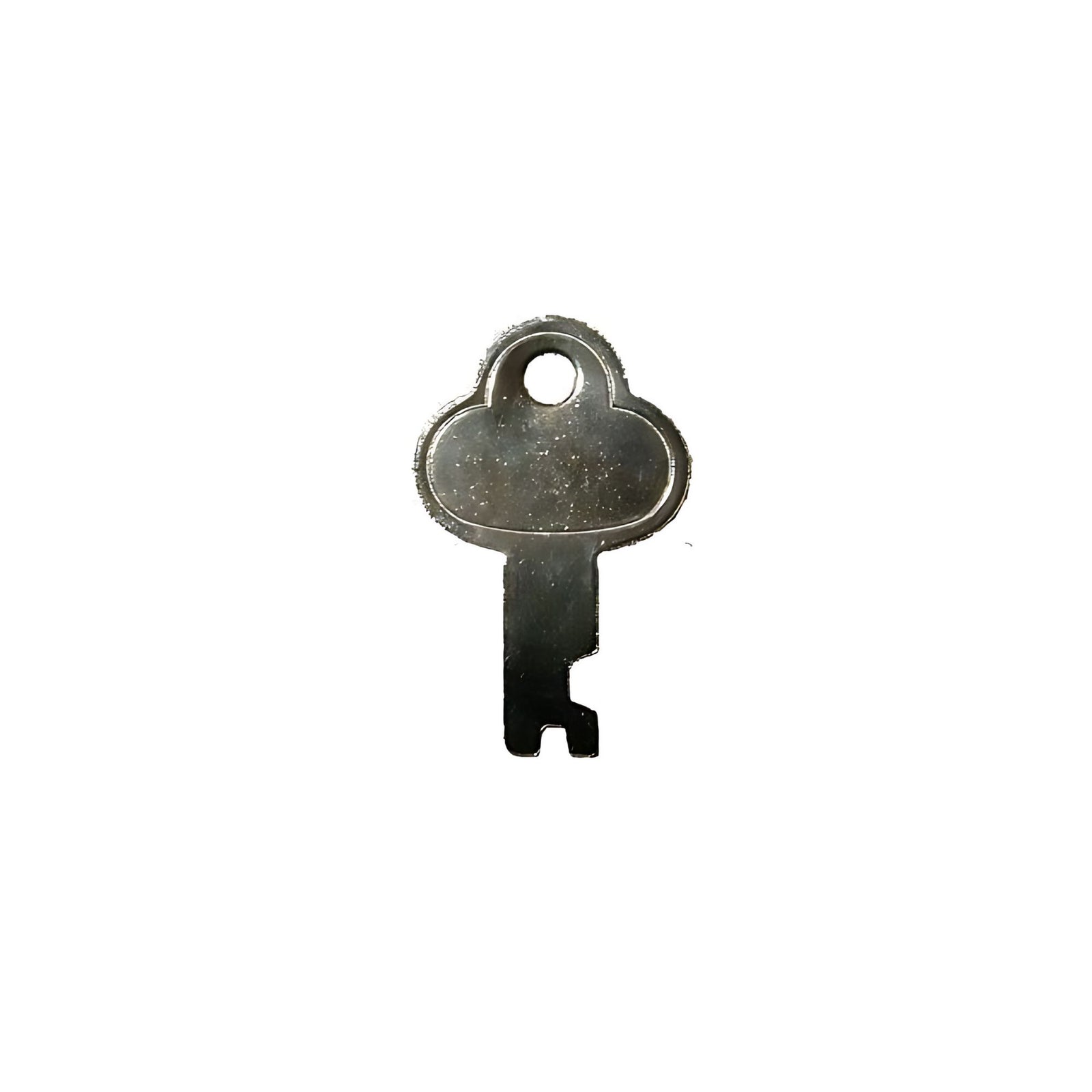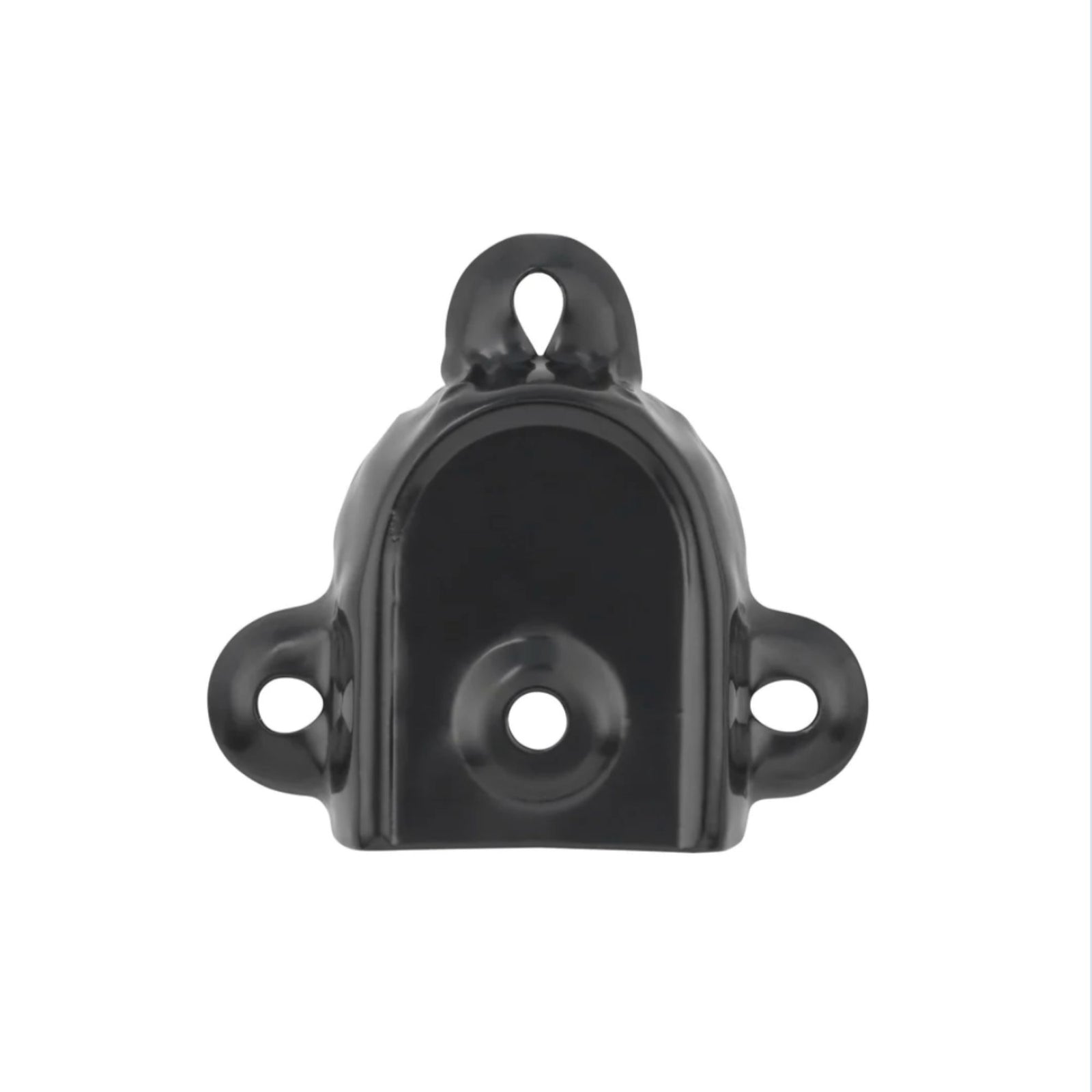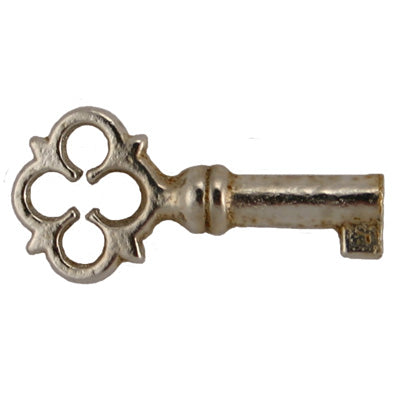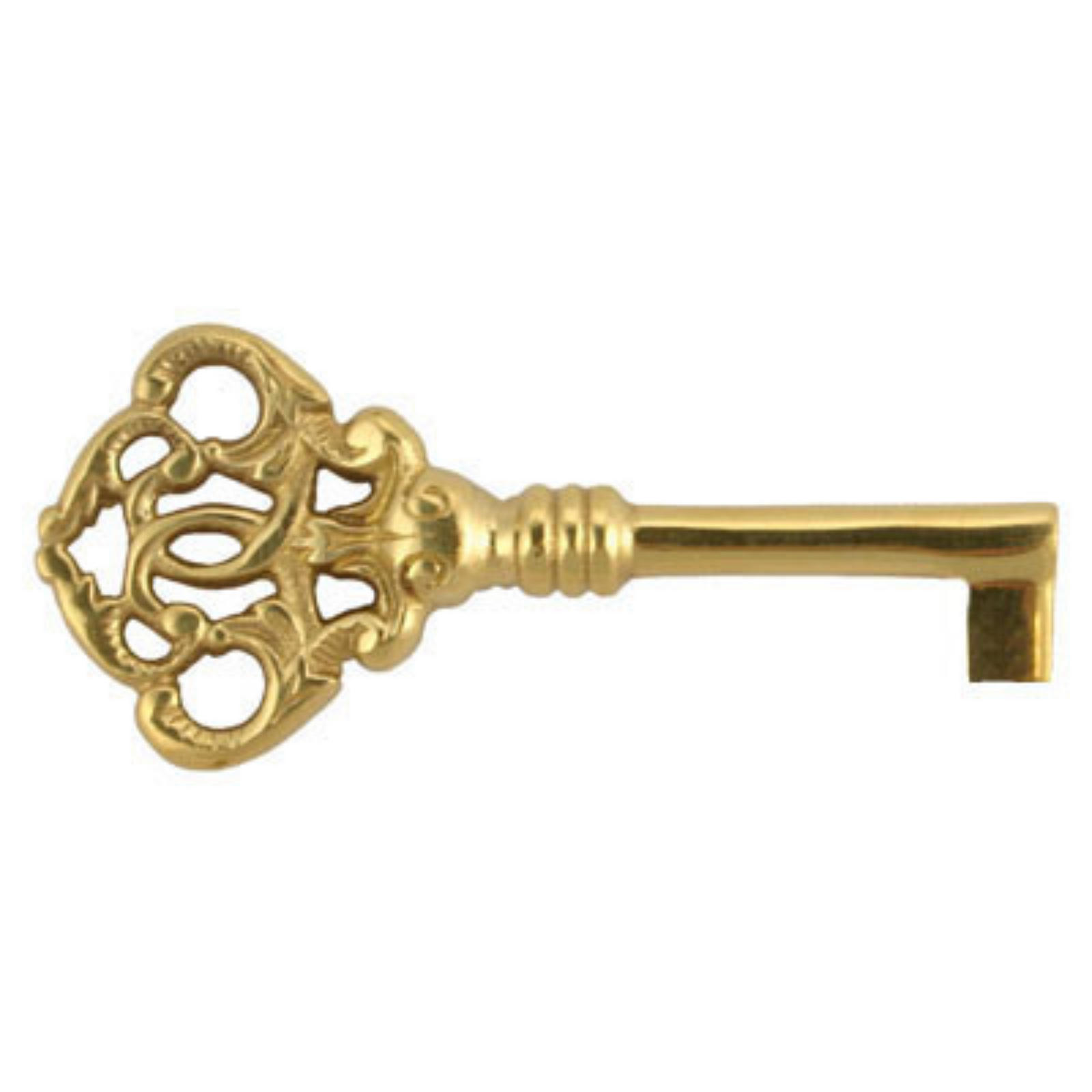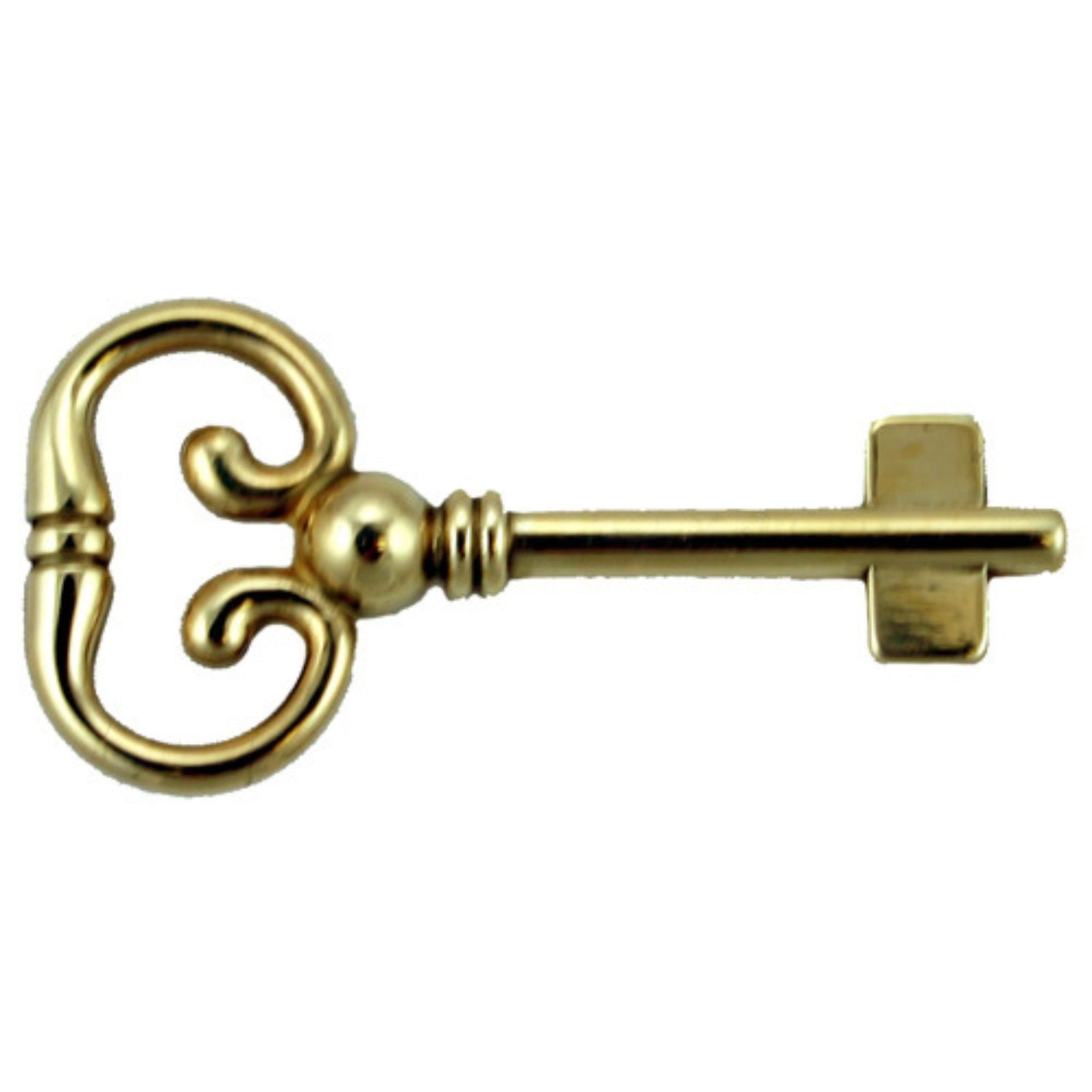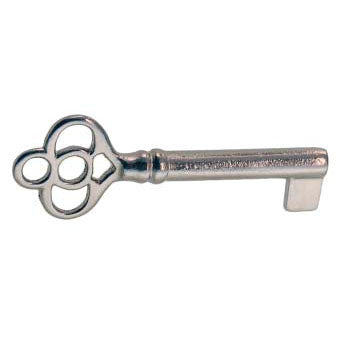Replacement Key for Trunk Lock – Preserve Your Antique Trunk’s Legacy
Description: Complete your antique trunk restoration with our Replacement Key, crafted to fit vintage-style trunk locks. Originally designed for early American trunks from the mid-19th to early 20th centuries, this replacement key helps preserve both functionality and historical authenticity. Perfect for collectors and restorers, it provides a safe, non-destructive way to access and maintain antique trunks.
Specifications
- Compatible Locks: Fits G34 and G51 trunk locks
- Dimensions: 1-9/16" long x 1" wide
- Material: Steel with brass finish
Historical Context
Trunk locks were an essential part of 19th-century travel and storage, evolving from handcrafted designs in the early 1800s to machine-made mechanisms by the mid-19th century. Keys were often unique to each manufacturer, making authentic replacements rare today. Using the correct key type not only restores access but also maintains the structural and historical integrity of your trunk.
Key Features
- Authentic design for vintage and reproduction trunk locks
- Essential for restoration and preservation of antique trunks
- Prevents damage caused by forcing or prying old locks
- High-quality construction ensures durability and reliability
Note: For solid brass locks, test fit before use to ensure compatibility. This replacement key is intended for G-series locks and may not fit all antique mechanisms.


